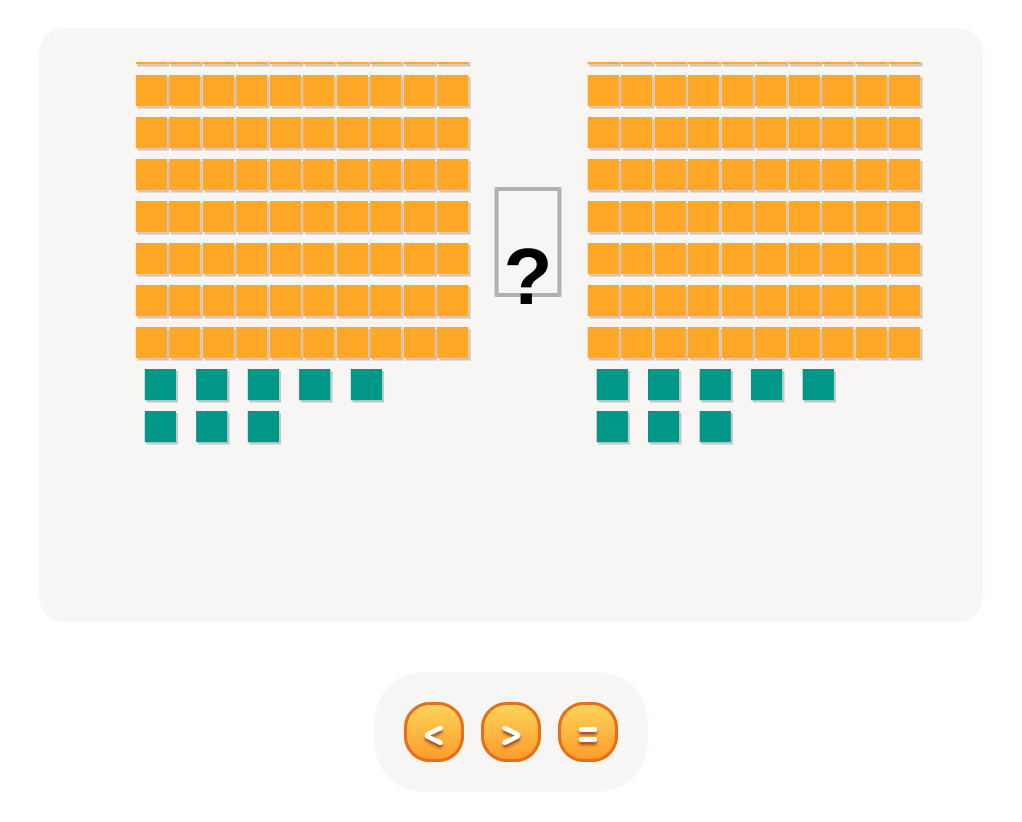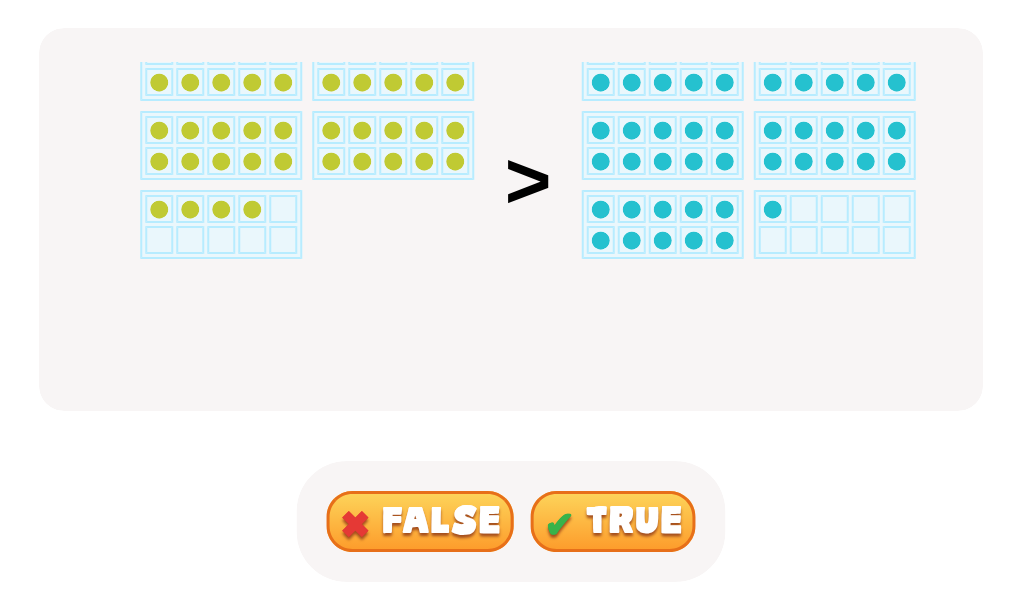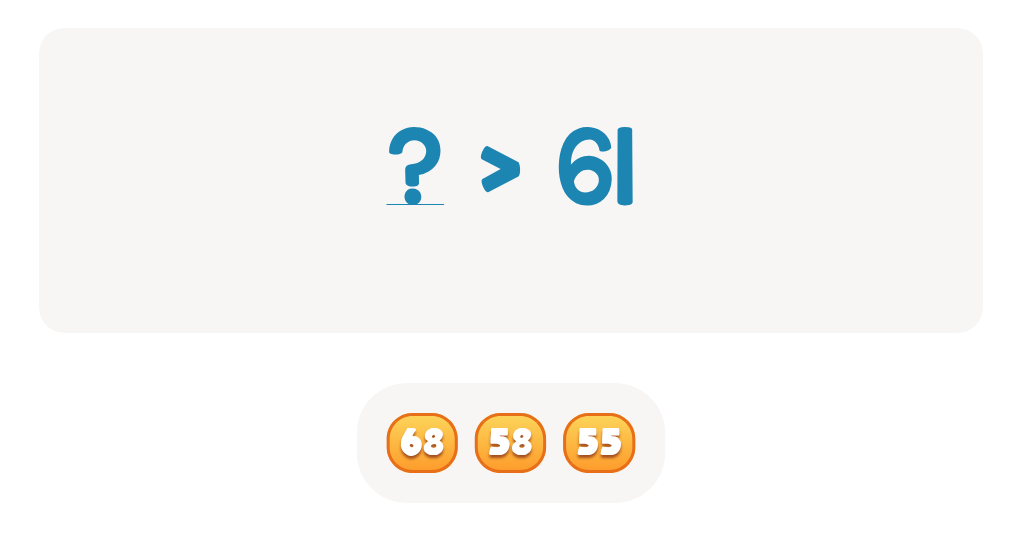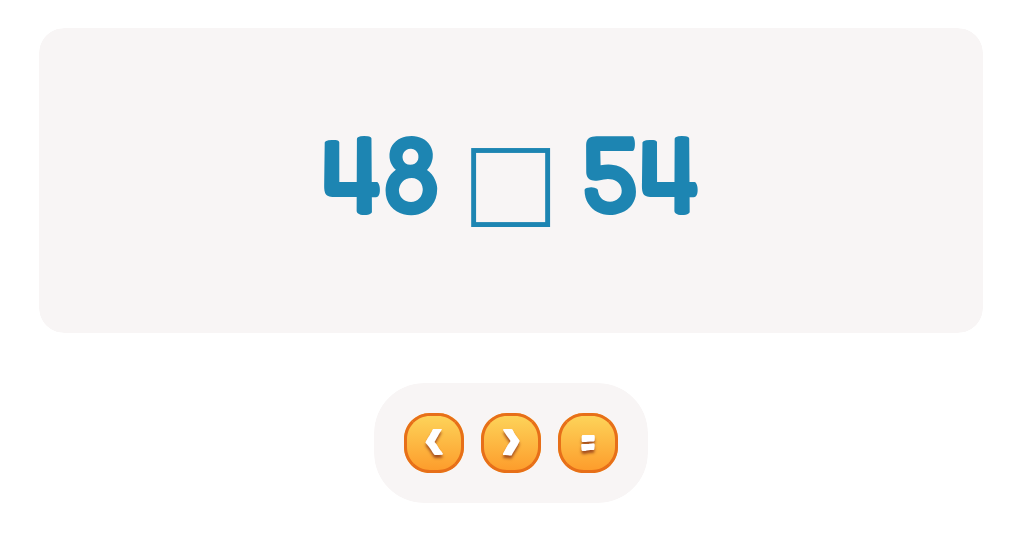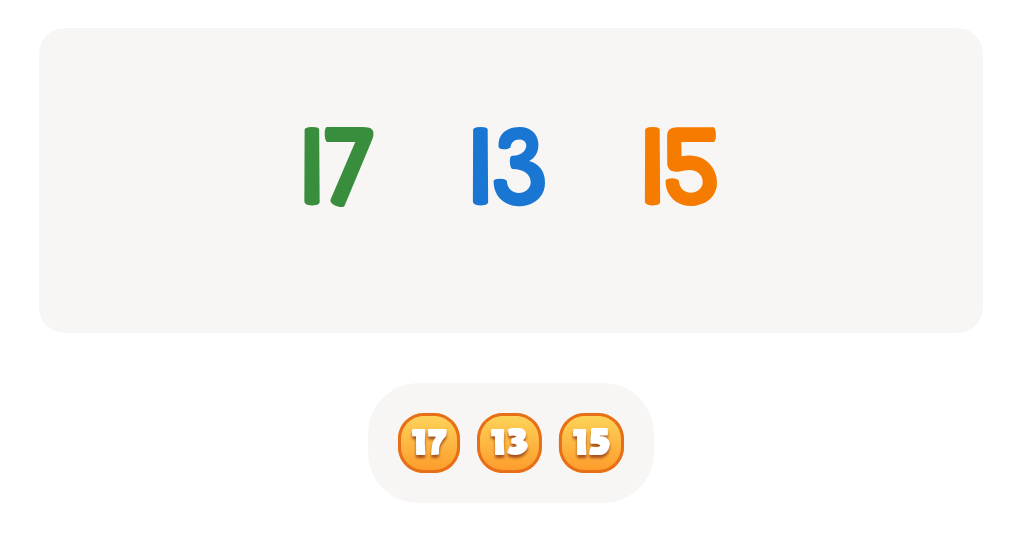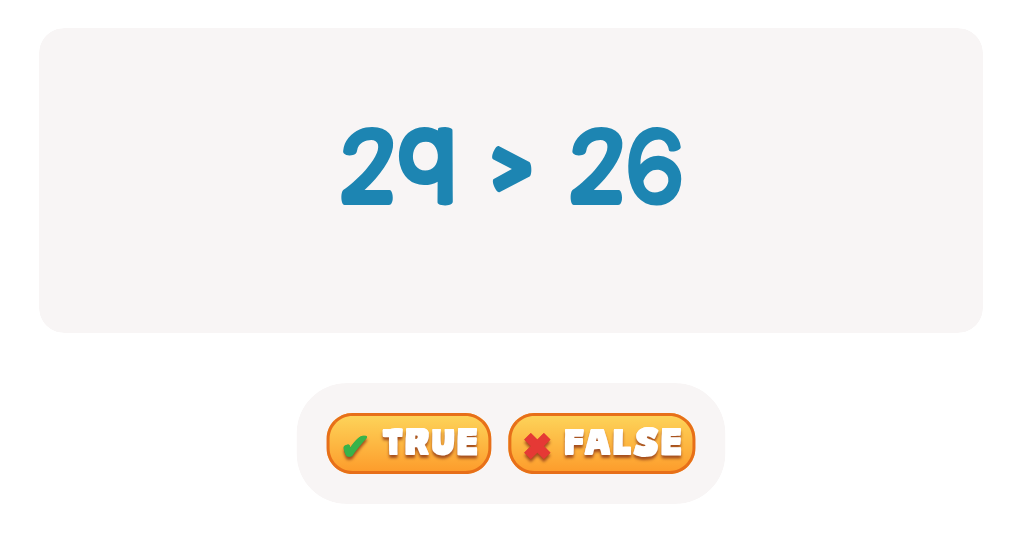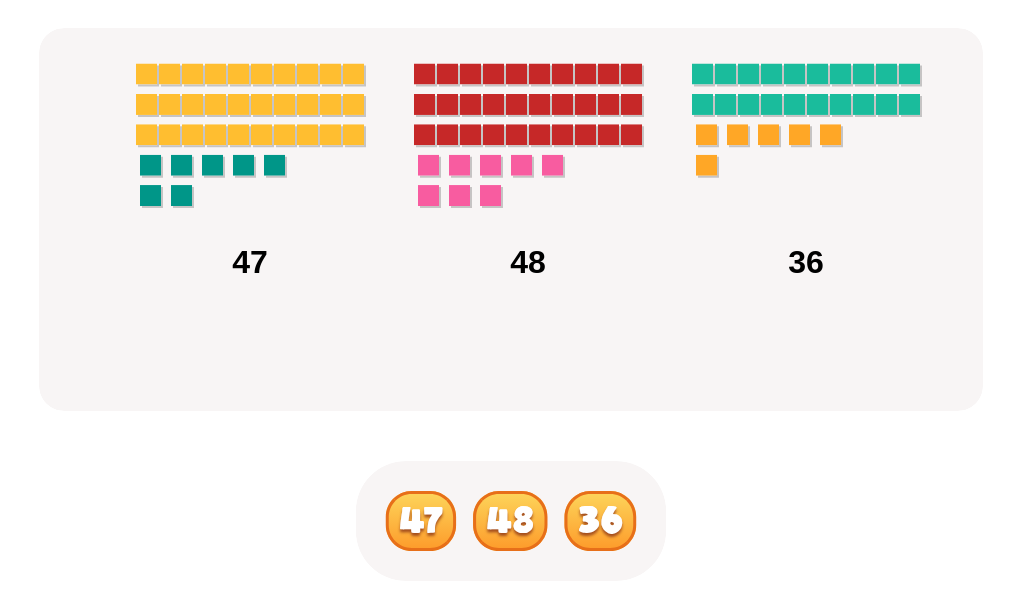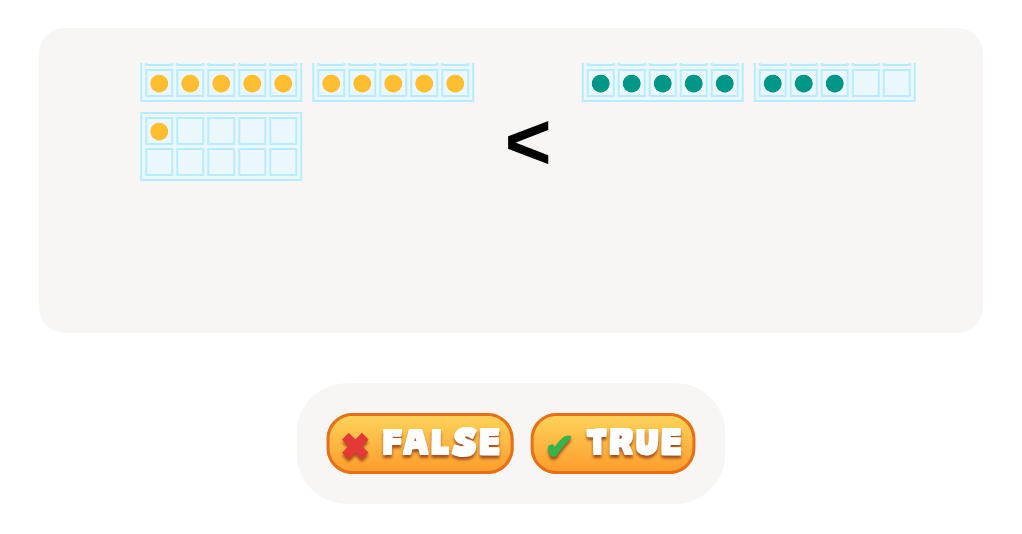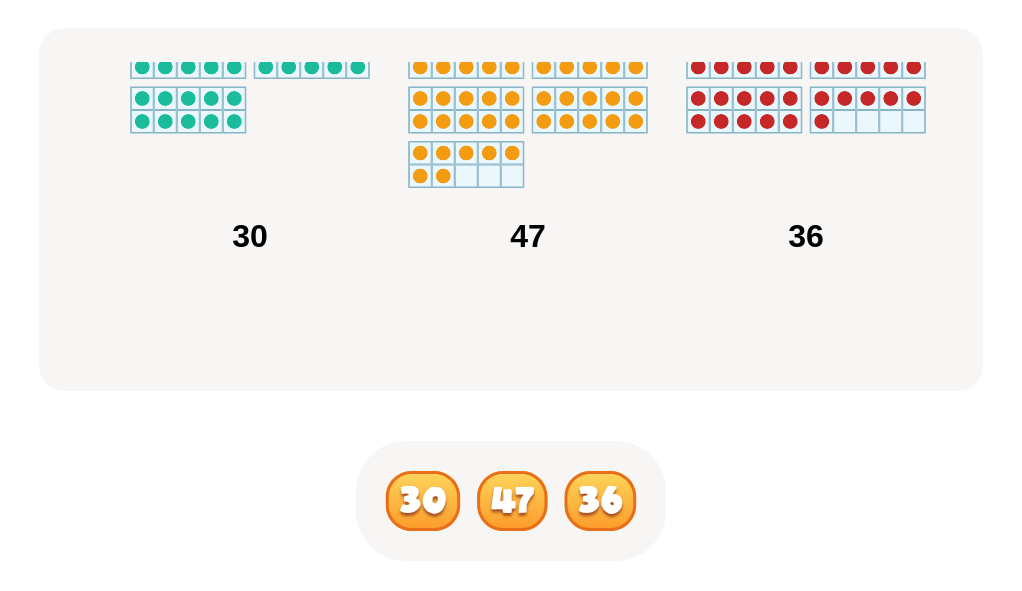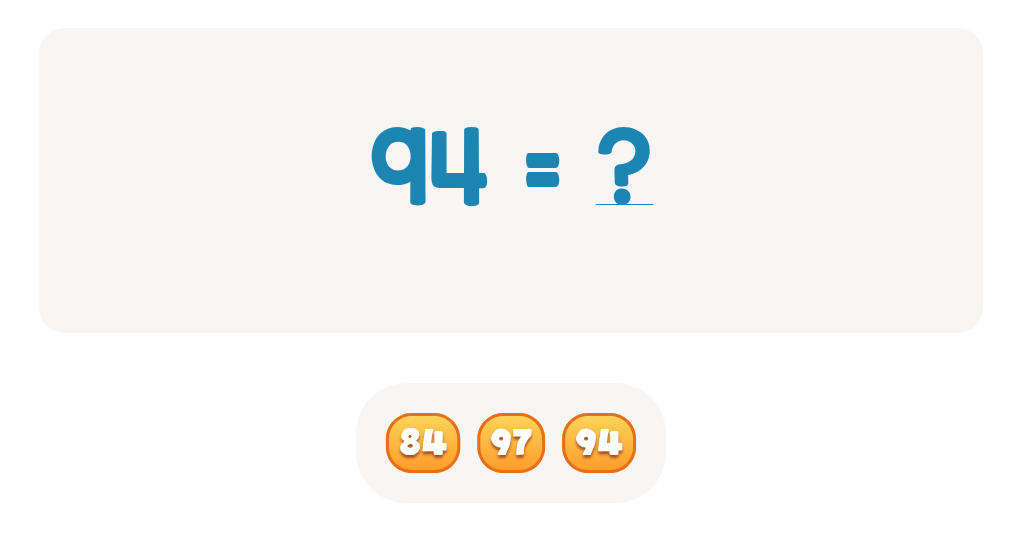Comparing Numbers Worksheets for 6-Year-Olds - Page 2
25 filtered results
-
From - To
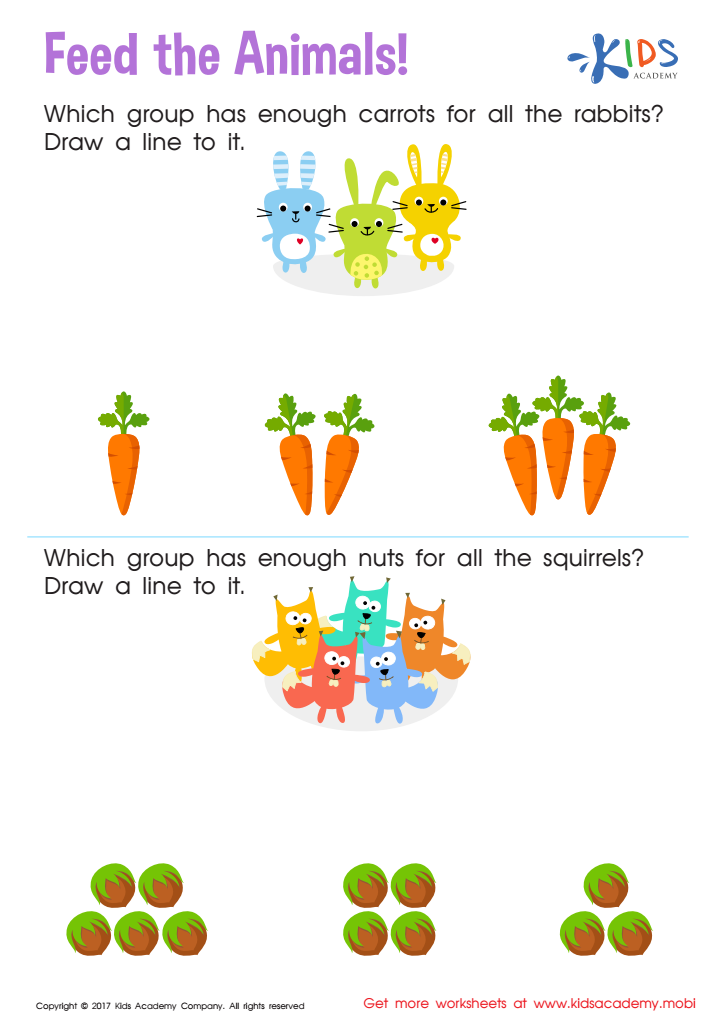

Count and Match: Feed the Animals Worksheet
Worksheets on Comparing Numbers for 6-Year-Olds serve as a fundamental tool in the early stages of a child's mathematical development. At this crucial age, children are just beginning to understand the concept of magnitude and how numbers relate to each other, which is essential for their future mathematical learning. These worksheets are specifically designed to cater to the learning capacity and interests of 6-year-olds, making the process engaging and effective.
One of the key reasons these worksheets are so useful is that they introduce children to comparison in a visual and interactive way. Whether it's through drawing lines to match numbers, coloring the bigger number, or using signs like greater than, less than, and equal to, these activities help solidify their understanding in a fun and creative manner. This hands-on approach not only enhances their numerical skills but also boosts their confidence in dealing with numbers.
Moreover, Comparing Numbers worksheets for 6-Year-Olds lay the groundwork for more advanced mathematical concepts. By mastering comparison, children can better tackle problems involving addition, subtraction, and even early stages of multiplication and division. As such, these worksheets are not just about learning to compare numbers; they're about setting a strong foundation for a lifetime of mathematical learning and exploration.

 Assign to My Students
Assign to My Students
